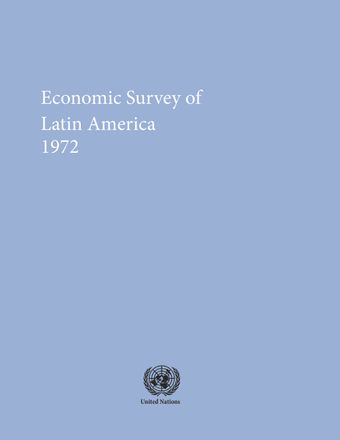The appraisal and prospects of planning processes in Latin America

- Author: Economic Commission for Latin America and the Caribbean
- Main Title: Economic Survey of Latin America 1972 , pp 173-184
- Publication Date: December 1972
- DOI: https://doi.org/10.18356/5c3ca1b9-en
- Language: English
The evaluation of the economic and social planning processes of developing countries is not an easy task. There are many factors which influence the effectiveness of this exercise, and its success is subject to unforeseeable developments and to variables with unpredictable effects. There is a tendency to equate the results of the planning process with the achievements of development, generally measured by the evolution of macroeconomic indicators. It may be asked whether such a comparison is valid or possible, however. The answer is not clear, since if the aim of planning is simply to speed up the growth rate, this rate may increase considerably without there being any significant changes in the socioeconomic structure, with the resuit that the system of production, the situation of the different social strata, and the country’s relations with the exterior may remain unchanged or change only to an insignificant extent. In contrast, it would be possible in theory to take the case of a planning process aimed not at bringing about deep-rooted changes in the structure of production but at improving and rationalizing the “natural” trends of economic development. In such a case it would be possible to predict the success of the process, but what significance would such a prediction have?
-
From This Site
/content/books/9789210583367s005-c001dcterms_title,dcterms_subject,pub_keyword-contentType:Journal -contentType:Contributor -contentType:Concept -contentType:Institution105



